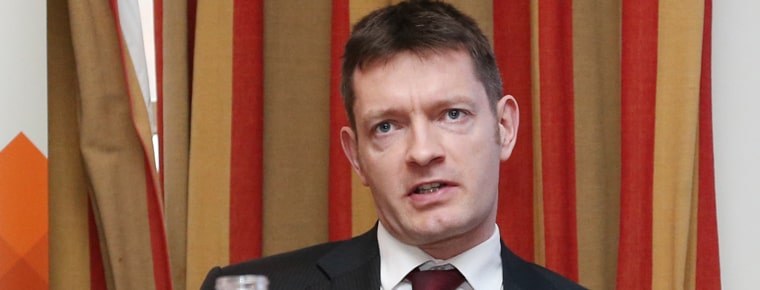 Professor Conor O'Mahony
Pic: RollingNews
Professor Conor O'Mahony
Pic: RollingNews
Probe into legal status of children born to same-sex couples by surrogate
A child-law expert is to review the legal position of children born through surrogacy to same-sex parents.
Special rapporteur on child protection Dr Conor O’Mahony will make his recommendations to health minister Simon Harris.
Child-law experts have pointed out the critical importance of accuracy in State certificates, since a birth certificate is the gateway to all other rights as a citizen.
'Reality of lineage'
Children’s ombudsman Niall Muldoon has said that every child born through assisted reproduction should have full, accurate information on “the reality of their lineage and birth … this would necessarily include the identity of any gamete donors or surrogates”.
Part nine of the Children and Family Relationships Act 2015 amends the Civil Registration Act of 2004 -- the legal framework for registration of birth. The new law will commence on 5 May.
The words ‘mother’ and ‘father’ are expected to be replaced, as appropriate, with ‘parent one’ and ‘parent two’.
No provision has yet been introduced to permit same-sex parents to be registered on the birth certificate of a child born through surrogacy.
But, under the new law, the registrar of births will hold “additional information” on donor-conceived children.
Genetic information
Under the new law, a donor-conceived child can access this genetic information on their biological origins when they reach the age of 18.
In tandem, the General Scheme of the Assisted Human Reproduction Bill provides for the formation of a National Donor-Conceived Persons Register (NDCPR) -- a move that was first mooted in section 33 of the Children and Family Relationships Act 2015.
Use of anonymous gamete donation is also banned, and donors must now sign an active legal consent for the use of their genetic material to conceive a child.
However, there is no legal responsibility, or suggested timescale, for parents to inform children about the truth of their biological origins.
Gazette Desk
Gazette.ie is the daily legal news site of the Law Society of Ireland